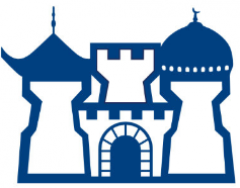
The World-Historical Gazetteer project (WHG) is now just past the halfway mark in our three-year NEH grant period. We are on track to produce what was promised in the proposal, notwithstanding some expansion of scope and unforeseen developments and opportunities. We expect future project milestones roughly as follows:
- March 2019: Alpha release of functional contributions system and basic API
- July 2019: Limited public beta for comment: contributions, API, place pages
- July 2019: Second Advisory Committee meeting
- September – December 2019: Rolling beta releases and data additions
- 1 April 2020: Launch
- April – May 2020: Refinements
There are currently seven (!) activity tracks: 1) data development; 2) outreach to potential data partners; 3) format standards; 4) backend design and development (data stores and contribution pipeline); 5) frontend design and development; 6) API; and 7) ecosystem.
The primary focus right now is the contribution pipeline of #4 and some pilot screens below show progress. We have a considerable volume of data queued up for conversion to Linked Places format then accessioning, and much more is promised.
The functionality we are providing for contributing data has become more ambitious than originally envisioned. We need to accommodate contributions ranging in size from a handful to many thousands, with a minimum of hand-holding by WHG support staff.
Registered users will have a dashboard from which they can manage datasets through the entire workflow: (i) uploading files, (ii) ingesting to our database, (iii) initiating reconciliation against name authorities, (iv) reviewing and validating “hits”, and (v) submitting the resulting enhanced dataset for indexing. Users will also be able to create, download, and share “MyPlaces” collections of records tagged while using the site. That’s a lot!
I will be presenting this poster at the Mainz Linked Pasts IV meeting, 11-14 Dec. The following figures are excerpted from it.
I will also join presenters of the LatAm Gazetteer project funded by a Pelagios Commons Resource Development grant. The LatAm project has provided us two excellent datasets, which together will form within WHGazetteer a “seed” of sorts for Colonial Latin America. Progress working with that data is indicated on the following functional screens in our pilot (pre-alpha) site. Note that little to no attention has been paid to styling at this point.



